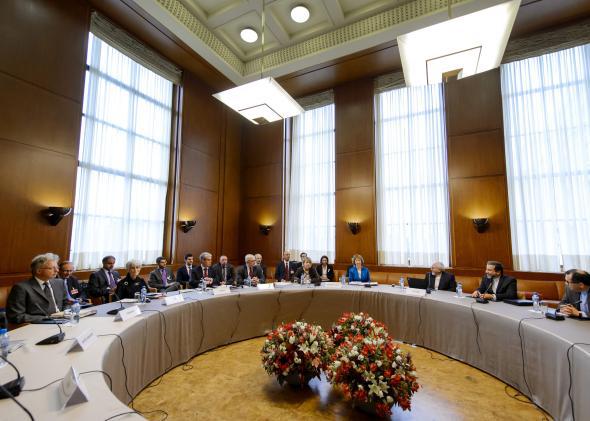The media spotlight can sometimes be beneficial to international negotiations. It’s been suggested, for instance, that coverage put pressure on the parties to make a deal during Northern Ireland peace talks. But generally, diplomats prefer to work out of the spotlight, without second-guessing by analysts and politicians back home.
One analysis of the Oslo Accords argues that the fact that they were in secret was a major factor in reaching an agreement. “Opening the process to the media would probably have frozen the parties’ positions to those to which they had committed themselves publicly,” wrote Harvard psychologist Herbert Kelman.
This can also be true when talks aren’t actually conducted in secret, but simply overlooked by most of the public. As I wrote in 2010, the relatively obscure U.N. talks on biodiversity wound up achieving a lot more than the highly publicized recent climate summits in Copenhagen and Cancún.
Thanks to the government shutdown and the looming default, the news cycle this week has skewed heavily domestic, and understandably so. Somewhat lost in all this has been what is actually a pretty big foreign-policy story, the restarted Iran nuclear talks in Geneva. It’s still early to say, but while nobody’s been paying attention, the talks have been going surprisingly well. Those two things may be connected.
Iranian Foreign Minister Javad Zarif presented a proposal in English yesterday to the so-called P5+1—the permanent members of the United Nations Security Council plus Germany—under which Iran’s nuclear program would be constrained and new inspections would be allowed in return for the right to enrich some uranium on Iranian soil and the lifting of sanctions.
“For the first time, we had very detailed technical discussions,” a U.S. official told the New York Times, and in an unusual development, the Iranian and U.S. delegations met separately on the sidelines of the summit. Iranian foreign minister Javad Zarif says new talks will be held in a few weeks time.
This still may all fall apart tomorrow, but it’s more progress than we’ve seen in a while Part of this may be due to the new tone set by President Hassan Rouhani, but the U.S. has also eased off the throttle a bit. The White House has suggested that it’s ready to act “quickly” to lift some sanctions if Iran presents a credible proposal. Analyst Trita Parsi also suspects, based on recent comments by Secretary of State John Kerry, that the “Obama administration is signaling that it will ultimately accept limited uranium enrichment in Iran under tighter scrutiny.”
Neither of these ideas—lifting sanctions or allowing some uranium enrichment on Iranian soil—is popular on Capitol Hill. And as Yochi Dreazen and John Hudson of Foreign Policy report, some members of Congress—some Democrats, in particular—are already signaling opposition to a deal involving lifting sanctions.
But Congress has also had its attention elsewhere this week. As Rep. David Price told FP, “We’re in such a weird situation on the Hill with the shutdown and all the oxygen is pretty much going to that fight.”
It’s easy to imagine an alternative-universe scenario in which the government is not shut down, the Iran talks are front-page news, and this is a major focus of attention from Capitol Hill. It still may be tough to the White House to sell Congress on lifting sanctions, but it has to have helped lead negotiator Wendy Sherman that Congress hasn’t been setting the terms of this debate before she even sat down with the Iranians.
Nobody wants this shutdown to continue, but it probably wouldn’t hurt for Capitol Hill’s attention to continue to be focused elsewhere as these talks go forward.
Of course, the major question looming over these talks is just how serious Iran is about making a deal. Will government hardliners—and more importantly Supreme Leader Ayatollah Ali Khamenei—be willing to accept any terms that are acceptable to Western powers?
The Iranian media didn’t exactly play the most constructive role in the run-up to Geneva. Perhaps if there was a government shutdown in Tehran we might really be getting somewhere.
